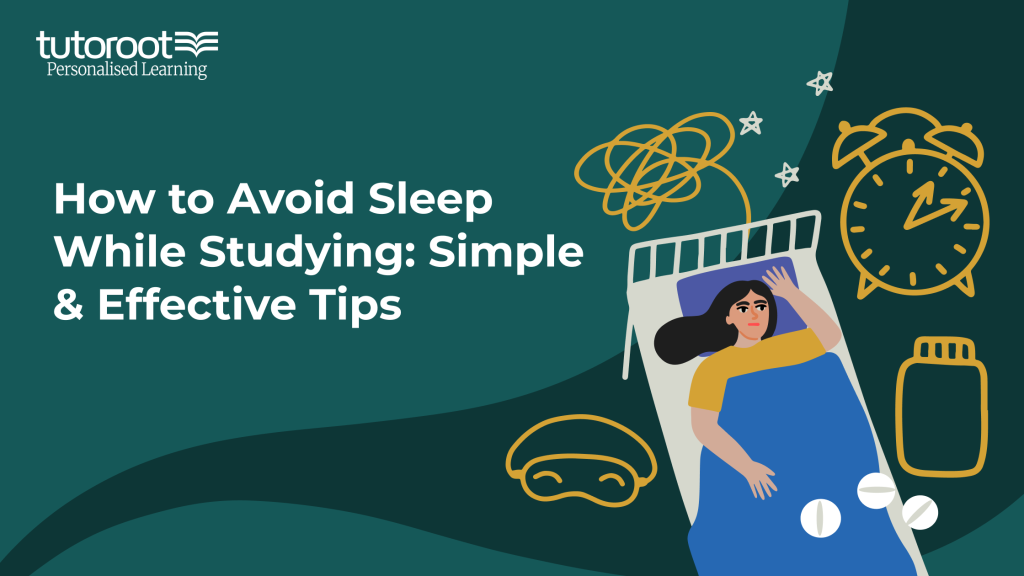How to Avoid Sleep While Studying: Simple & Effective Tips

Every student has faced this problem at least once—you sit down with your books, determined to study, but within minutes your eyelids get heavy and you start dozing off. If you’re wondering how to avoid sleep while studying, especially while preparing for board exams, JEE, NEET, or any competitive test, it can feel incredibly frustrating.
The good news is that staying awake while studying isn’t as hard as it seems. With a few small changes in your routine, you can keep sleepiness away and make your study sessions more productive. Let’s look at some practical tips.
1. Study in a Bright, Well-Lit Space
When the room is dim, your brain automatically thinks it’s time to relax. Try sitting in a place with good lighting—it instantly makes you feel more awake and active.
2. Watch Your Posture
Studying while lying in bed is the easiest way to fall asleep. Instead, sit on a chair with a straight back. Good posture not only keeps you alert but also improves focus.
3. Take Short, Regular Breaks
Studying for long hours at a stretch can drain your energy. Try the Pomodoro method—study for 25 minutes, then take a 5-minute break. A short pause refreshes your mind and prevents drowsiness.
4. Drink Enough Water
Sometimes tiredness comes from dehydration. Keep a water bottle with you and sip often. Drinking cool water can also wake you up when you start feeling sleepy.
5. Choose Light Snacks Over Heavy Meals
Eating a big, heavy meal before studying will almost always make you sleepy. Go for light, energy-boosting snacks like fruits, nuts, or yogurt that fuel your brain without slowing you down.
6. Move Your Body During Breaks
Instead of scrolling on your phone during breaks, get up and stretch, walk around, or do a few jumping jacks. Movement increases blood flow and gives your brain a quick recharge.
7. Splash Cold Water on Your Face
If sleep hits you hard, wash your face with cold water. It’s one of the fastest ways to feel refreshed and ready to continue.
8. Avoid Late-Night Cramming
Late-night study sessions are usually the sleepiest. If possible, switch to early mornings, when your mind is naturally more active and alert.
9. Stay Actively Involved in Learning
Don’t just read passively. Write notes, highlight key points, or explain the concept out loud as if you’re teaching someone. Active learning keeps your brain engaged and helps fight off sleep.
10. Get Proper Sleep at Night
No hack can replace a good night’s sleep. Aim for at least 7–8 hours of rest daily. When you’re well-rested, staying awake and focused during study time becomes much easier.
Final Words
Feeling sleepy while studying is normal, but with these small adjustments, you can train your mind and body to stay more alert. Remember, the goal isn’t to cut down on rest—it’s to study smarter and keep distractions like drowsiness away.
At Tutoroot, we believe that every student has the potential to achieve excellence with the right guidance. Our personalised 1-on-1 online tuition ensures that students not only understand concepts deeply but also develop effective study habits that keep them focused and confident. With experienced tutors, interactive learning methods, and a proven track record of improving scores, Tutoroot is more than just a tuition platform—it’s a partner in every student’s success journey.
